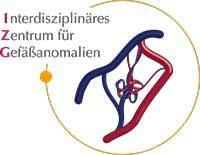Breast Cancer — Embolization or Chemoembolization: treatment in the Best Hospitals in the World
Treatment prices are regulated by national law of the corresponding countries, but can also include additional hospital coefficients. In order to receive the individual cost calculation, please send us the request and medical records.
Breast Cancer Treatment
- Diagnostics
- Reconstruction with an expander or allo prosthesis
- Diep-flap plastic reconstruction with own tissues
- Reconstruction with own tissue or implant after radical mastectomy
- Radical mastectomy
- Brachytherapy
- Chemotherapy
- Lumpectomy and lymphadenectomy by metastases to lymph nodes
- Radiotherapy
- Sectoral resection with flap plastic
- Proton Therapy

Department of Interventional Radiology
The Department of Interventional Radiology offers the full range of imaging examinations, as well as innovative image-guided minimally invasive techniques for the treatment of tumors, vascular diseases and internal pathologies (for example, CT, MRI, PET-CT, SPECT). The department's doctors have deep knowledge and colossal experience in the field of interventional radiological methods of treatment, which represent an excellent alternative to open surgical interventions. Despite the high level of technical equipment and the presence of advanced computerized systems, the focus is always on the person with his individual needs. Compliance with current clinical protocols and high professionalism of the department's specialists contribute to the successful clinical practice, as well as the reputability of the department among the best medical facilities of this kind in Germany.




Department of Interventional Radiology and Neuroradiology
The Department of Interventional Radiology and Neuroradiology offers a full range of advanced imaging diagnostics and minimally invasive treatments on both an inpatient and outpatient basis. The department has state-of-the-art medical equipment for imaging tests such as X-ray, computed tomography, magnetic resonance imaging, digital subtraction angiography, and mammography. The medical facility also performs many highly effective interventional therapeutic procedures under image guidance, which in many cases allow patients to avoid traumatic open surgery. For example, the department successfully performs local fibrinolysis, thrombectomy, percutaneous transluminal angioplasty, hemostasis, transarterial chemoembolization, uterine artery embolization, and other procedures. The department's neuroradiologists specialize in brain and spinal cord imaging and the treatment of central nervous system disorders. Interventional neuroradiology focuses on the treatment of carotid artery stenosis, brain aneurysms, arteriovenous malformations, dural fistulas, subdural hematomas, brain tumors, skull base and spinal tumors, and chronic back pain. The department's medical team has extensive clinical experience in their areas of expertise. The specialists are guided by the recommendations of the German Society for Interventional Radiology and Minimally Invasive Therapy (DeGIR) and the German Society for Neuroradiology (DGNR), which helps to achieve the best results.






Department of Adult and Pediatric Diagnostic, Interventional Radiology, Neuroradiology
The Department of Adult and Pediatric Diagnostic, Interventional Radiology, Neuroradiology is one of the best institutions of its kind in Germany and offers patients the full range of radiological studies and imaging-guided minimally invasive therapy. The department’s scope of tasks also includes imaging diagnostics in children of all age groups, detection and invasive treatment of cerebral vascular pathology (neuroradiology). Patient care is provided both on an inpatient and outpatient basis.






Breast cancer is the most common malignant tumor in women. It accounts for every sixth death from cancer. Most countries implement breast cancer screening, so the tumor is increasingly detected at the early stage. Nevertheless, the disease is diagnosed too late in some women, when a radical surgery is impossible. In this case, embolization may become the main treatment method. It is used to combat not only the primary breast tumor, but also to suppress metastases.
Content
- What is embolization
- When is embolization used
- Internal mammary artery embolization
- Redistributive embolization
- Hepatic artery embolization
- Why is it worth undergoing treatment abroad
- Treatment in Europe with Booking Health at an affordable price
What is embolization
Embolization is a treatment option for breast cancer, which involves closing the lumen of the vessels supplying the tumor. Cancer cells do not receive oxygen, so they die. The technique does not completely eliminate the tumor, but reduces its size, which leads to an increase in life expectancy, alleviation of symptoms, and an increase in the effectiveness of other treatment methods.
As a rule, breast cancer patients do not receive pure embolization, but transarterial chemoembolization (TACE). The technique additionally includes regional chemotherapy. Drugs are delivered directly to the tumor with arterial blood.
To close the lumen of the vessels, doctors use an embolization agent containing chemotherapy drugs. Most often, it is a lipiodol solution. In addition, drug-eluting microspheres are used for the treatment of breast cancer with liver metastases, which block arteries and then gradually release chemotherapy drugs.
Chemoembolization for patients with breast cancer provides the following benefits:
- Minimal invasion – the procedure is performed through the blood vessels, so the doctor only needs to make a small incision in the thigh to insert the catheter.
- Duration of hospital stay is only 3-4 days.
- With the proper performance of the procedure, complications are extremely rare.
- No need for rehabilitation.
- Method is combined with other cancer treatments, including radiation and drug therapy.
Chemoembolization reduces the tumor size or stabilizes it. In case of progression, the procedure can be repeated.
When is embolization used
TACE is not the main option for the treatment of patients with breast cancer. Surgery is always preferred. Chemotherapy, targeted, hormonal, and radiation therapy can be used additionally.
Embolization of the breast vessels is used for unresectable cancer. The procedure is most often used for edematous-infiltrative type of breast cancer. This is an unfavorable type of pathology, which is observed in 3-4% of women.
Types of this form:
- Primary edematous or inflammatory cancer – inflammatory breast cancer (IBC). It accounts for 75% of cases. Pathology is manifested by inflammation, redness, soreness, and swelling of the breast.
- Secondary edematous breast cancer – 25% of cases. Initially, the tumor develops as a nodular cancer, but it is complicated by lymphogenous metastases, due to which the lymph outflow is blocked. The result is breast swelling.
TACE can be used in other unresectable cancers if the patient does not respond to systemic chemotherapy. When using regional chemotherapy, more drugs enter the breast tissue. In addition, the systemic toxicity of the treatment is reduced.
About 80% of patients have liver metastases at the advanced stage of breast cancer. To suppress them, hepatic artery embolization is performed.
Internal mammary artery embolization
Chemoembolization of the internal thoracic artery is used in the absence of the possibility of surgical treatment, when systemic chemotherapy does not work.
The treatment procedure is minimally invasive. The doctor makes an incision in the groin to access the femoral artery. He inserts the catheter and reaches the right or left internal thoracic artery. Then an angiography is performed: the doctor uses a contrast agent to imagine the vasculature. When the contrast is injected, a series of X-rays are taken.
TACE is usually performed with lipiodol and chemotherapy (oily chemoembolization). This treatment option does not permanently close the vessels. After a while, the patency of the arteries will be restored. However, while they are closed, there is a rapid death of the tumor, since it has no blood supply.
Although TACE does not permanently cure cancer, breast cancer patients can live for many years after this procedure. Embolization is used in combination with other methods: irradiation, drug therapy. TACE can be performed repeatedly, if necessary. The procedure can be done many times. It is usually performed at 4–6-month intervals. Embolization is used until patients respond to the treatment.
Redistributive embolization
During chemoembolization for pancreatic cancer, the embolization agent may enter non-target vessels. This leads to complications: skin necrosis, dysfunction of the internal organs, neuralgia (pain along the nerves).
To avoid complications, European specialists carry out redistributive chemoembolization in the internal thoracic artery basin. Doctors introduce microcoils with a diameter of 2 to 4 mm and a length of 1-2 cm into the vessels. They are implanted beyond the origin of the anterior intercostal branches.
Chemoembolization of the internal mammary artery is performed when the non-target vessels are protected. Such an approach not only reduces the risk of complications, but also improves the therapeutic effect. Due to the closure of the branches, a compensatory expansion of the internal thoracic artery occurs. As a result, blood flow in the breast increases, so more embolization agents penetrate the tumor.
Hepatic artery embolization
At the advanced stage of breast cancer with liver metastases, hepatic artery chemoembolization is used. This is not the main treatment option. If possible, liver resection is preferred. However, this treatment method is applicable only to 15% of patients. In addition, the risk of recurrence within 3 years after surgery is 70%, within 5 years – 90%. Liver resection can be repeated in only one out of three patients.
Thus, the operation in most cases is not performed, and therefore the most common method of dealing with metastases is hepatic artery embolization.
The essence of the procedure is similar. The only difference is that emboli are injected into the hepatic artery and not into the internal thoracic artery.
The liver has a dual blood supply. The healthy parenchyma receives 75% of its blood from the portal vein, and only 25% from the hepatic artery. However, the tumor is supplied with arterial blood by 90%, therefore, if the arterial blood flow is impaired, it quickly dies off. Damage to healthy tissues is minimal, since they continue to receive blood from the portal vein.
Drug-eluting microspheres are used for hepatic artery TACE in Europe. Unlike oily chemoembolization, they permanently close the vascular lumen. Microspheres do not penetrate as deeply into the liver as they get stuck in small arteries. The advantage of the method is that chemotherapy drugs are released from microspheres gradually, so they can act on the tumor for several weeks. Tests show the advantages of microspheres over oily chemoembolization: they provide a higher response rate with less systemic toxicity of chemotherapy.
Why is it worth undergoing treatment abroad
If the level of medicine in your country is low, it is better to undergo treatment of cancer abroad. Embolization of the tumor vessels has been successfully used for decades in the developed European countries. The procedure is carried out successfully and without serious complications.
There are several reasons why you should undergo endovascular embolization for breast cancer abroad:
- Vast and successful experience in performing chemoembolization for unresectable breast cancer.
- Modern types of the procedure are used, including the use of drug-eluting microspheres.
- High-precision diagnostics allows the doctors to assess the blood supply to the tumor in order to make the procedure as effective as possible and to avoid complications.
- During the procedure, doctors close the non-target vessels with coils to prevent penetration of embolization agents into them.
- Embolization is used not only to suppress the primary tumor, but also to deal with cancer metastases, which most often develop in the liver.
- The successful combination of chemoembolization with other treatment methods can increase the life expectancy of patients by 5-10 years, even if the advanced stage cancer is diagnosed.
Treatment in Europe with Booking Health at an affordable price
To undergo treatment in one of the European hospitals, please use the services of Booking Health. On our website, you can see the cost of treatment in different hospitals, compare prices and book a medical care program at an affordable price. Transcatheter chemoembolization for breast cancer in European hospitals will be easier and faster for you, and the cost of treatment will be lower.
Please leave your request on our website. Our employee will contact you and provide consultation about treatment in Europe. Booking Health will take care of the organization of your trip. We will provide the following benefits for you:
- We will select a hospital for treatment in Europe, whose doctors specialize in transcatheter chemoembolization.
- We will help you overcome the language barrier, establish communication with your attending physician.
- We will reduce the waiting period for the medical care program and book a doctor's appointment on the most suitable dates.
- We will reduce the price. The cost of treatment in European hospitals will be decreased due to the lack of coefficients for foreign patients.
- We will take care of all organizational issues: documents for entering the country, transfer from the airport, hotel, interpreting services, etc.
- We will prepare a medical care program and translate medical records. You do not have to undergo previously performed diagnostic procedures.
- We will provide communication with the hospital after treatment in Europe.
- We will organize additional diagnostic examinations and treatment in European hospitals, if necessary.
- We will buy medicines abroad and forward them to your native country.
- We will help you keep in touch with the hospital and the doctor after treatment in Europe.
You will be treated by the best doctors in the world. The Booking Health specialists will help you reduce the cost of treatment and take care of all organizational issues, and you will only have to focus on restoring your health.
Authors:
The article was edited by medical experts, board certified doctors Dr. Nadezhda Ivanisova and Dr. Bohdan Mykhalniuk. For the treatment of the conditions referred to in the article, you must consult a doctor; the information in the article is not intended for self-medication!
Our editorial policy, which details our commitment to accuracy and transparency, is available here. Click this link to review our policies.
Sources:

